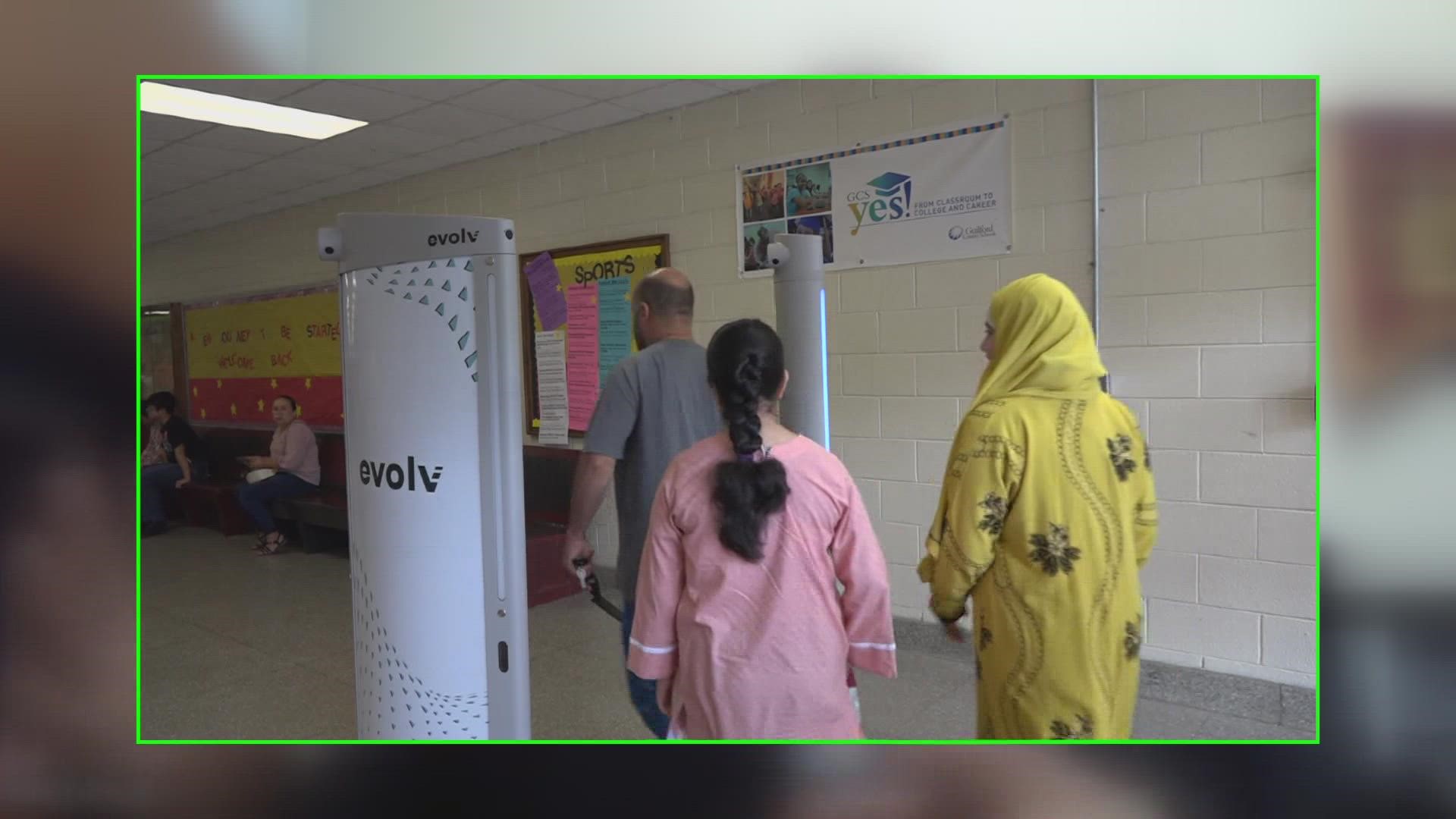GREENSBORO, N.C. — Safety in schools tops this year's checklist, as education leaders across the country evaluate and rework protocols. A new step to strengthen school safety is under the microscope.
Across the country, many districts are using body scanners this year. The technology is nothing new, as it already is in airports and other populated venues.
THE QUESTION
The concept promotes safety, but what about the technology, itself? Do body scanners emit harmful levels of radiation?
THE SOURCES
THE ANSWER
No, body scanners using non-ionizing radiation technology do not emit a harmful amount of radiation. They are safe for daily use in schools or workplaces, but if you have concerns, consult a physician.
THE PROCESS
Radiology safety officer Mark Pflug explained, "The radio waves that are emitted -- they bounce really readily from the body. So, they're not x-raying the body; there's no radiation that's retained in the body. It's basically bounced off back to the detectors. They don't have the ability to damage an atom in your body or cell."
He said this 'non-ionizing radiation' is low energy, similar to that of a microwave on the electromagnetic spectrum. Body scanners are different from both the standard metal detector and the backscatter x-ray technology airports phased out a decade ago.
An Argonne National Laboratory report noted new body scanner technology scans the body without touching it to identify objects beneath clothing. Body scanner manufacturer Evolv, which supplies to Guilford County Schools, affirmed its system uses the low-frequency technology and meets several safety certifications.
The CDC confirmed even daily use of the scanners is safe and pointed out the technology releases thousands of times less energy than a cell phone. However, Pflug suggested anyone with a medical device consult a physician before using scanners regularly.
"Someone with a hearing aid could experience (in a magnetic field) feedback from their hearing aid. Anybody that could have an insulin pump -- it (the body scanner) might affect it, if they're in the field long enough. (For) someone just passing through the scanner a fraction of a second, I don't feel it's going to cause any disruption in a medical device," he said.
Pflug emphasized radiation from sunlight and radon gas are much stronger and more threatening. That is why it is important to wear sunscreen and do home radon testing.

